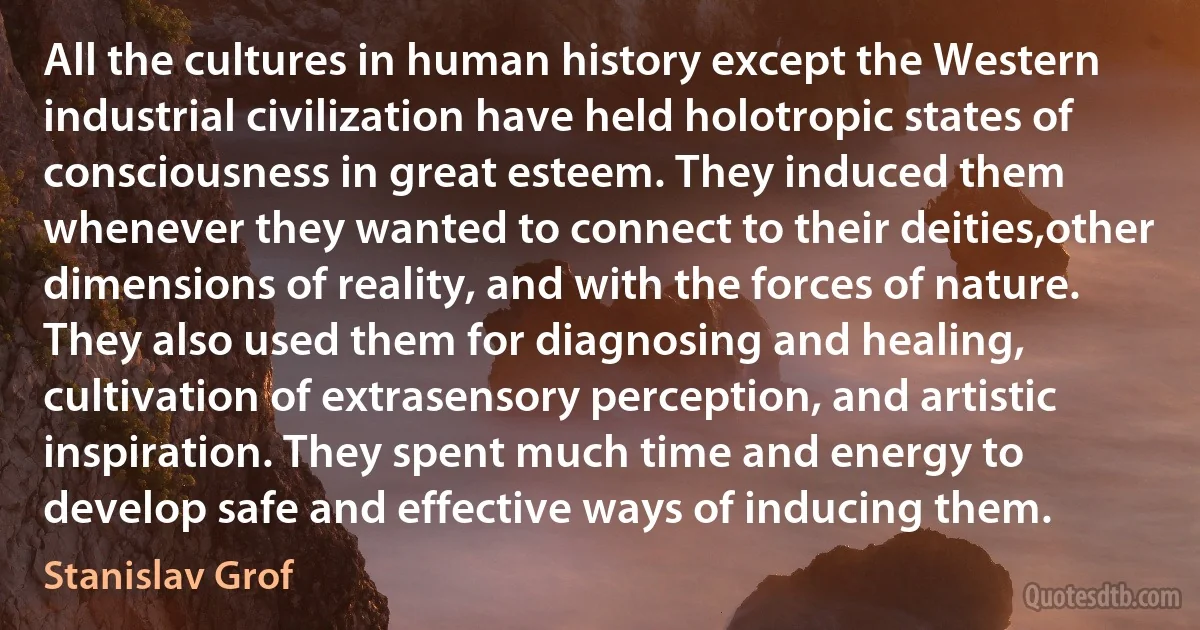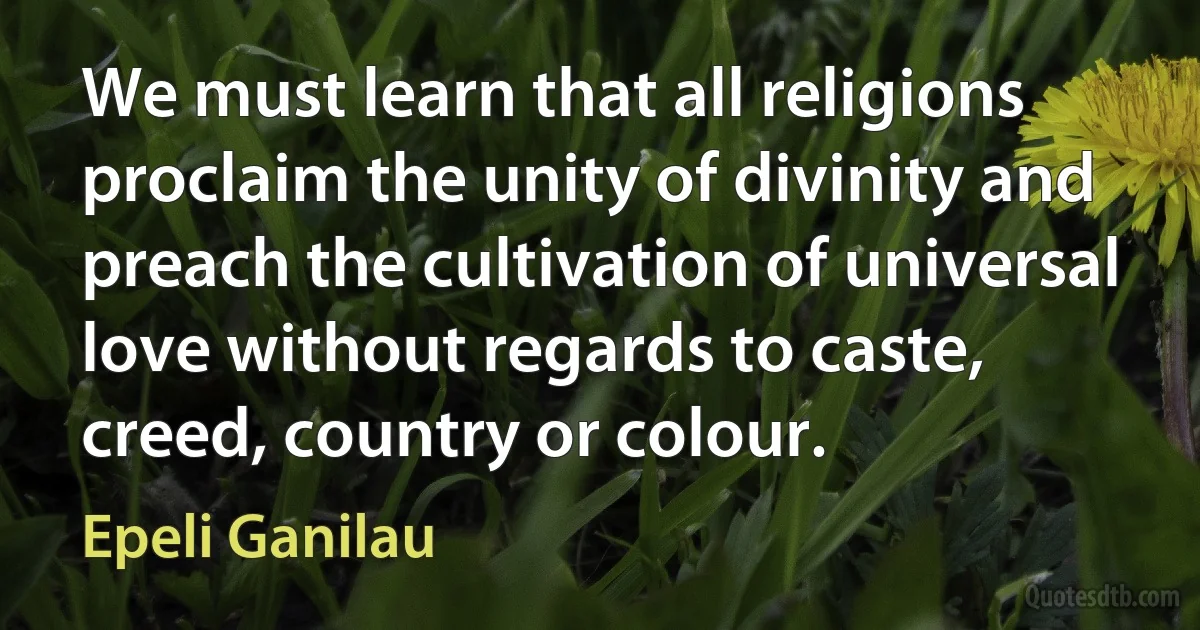Cultivation Quotes - page 6
The destruction of the old bonds between employers and workmen was not peculiar to manufactures; it came to pass in agriculture also. An agrarian as well as an industrial revolution had taken place. Scientific methods of cultivation had been substituted for unscientific; vast enclosures had been made; traces of the old three-field system of apportioning the land were fast disappearing; small farms were giving way to large. A new race of farmers, corresponding to the new race of manufacturers, had sprung into existence, who, enriched by the high prices which prevailed during the great war, changed their habits of life. The labourer ceased to be a member of the farmer's household, and, to use Cobbett's words, was thrust out of the farm-house into a hovel.

Arnold Toynbee
People don't realize what a brilliant politician Lincoln was. Looking back, we want to ascribe a level of providence to his every decision but he was a cunning and calculating politician; from the cultivation of his image as a hayseed from Illinois, to his ability to keep this country together under dire circumstances.

Henry Louis Gates
While we maintain the unity of the human species, we at the same time repel the depressing assumption of superior and inferior races of men. There are nations more susceptible of cultivation, more highly civilized, more enobled by mental cultivation than others, but none in themselves nobler than others.

Alexander von Humboldt
It is impossible to understand the graveness of the Western crisis unless we realize that the cultivation of values beyond Littré's formula of civilization as the dominion of man over nature and himself by means of science is considered by broad sectors of Western society to be a kind of mental deficiency.

Eric Voegelin
Music, for Gangubai, was an expression of faith and the note had to be searched and discovered each time a phrase was attempted. ...In her case, a penetrating search for the note was more important than ornamentation. She could never achieve the sweetness, smoothness or the delicate artistry of tones that the Kirana was noted for, but with inherited talent, scrupulous cultivation and years of struggle what she achieved was unbelievable.

Gangubai Hangal
Because every portion of the body, mind, and spirit yearns for the integration of yin and yang, angelic intercourse is led by the spirit rather than the sexual organs.... Where ordinary intercourse unites sex organs with sex organs, angelic cultivation unites spirit with spirit, mind with mind, and every cell of one body with every cell of the other body.

Laozi
Is it practicable, on the soil and in the climate of Massachusetts, to pursue a succession of crops? I cannot question it; and I have entire confidence in the improvements to our husbandry, and the other great advantages, which would accrue from judicious rotation of products. The capacities of the soil of Massachusetts are undoubted. One hundred bushels of corn to an acre have been repeatedly produced, and other crops in like abundance. But this will not effect the proper ends of a judicious and profitable agriculture, unless we can so manage our husbandry that, by a judicious and proper succession of the crops, land will not only be restored after an exhausting crop, but gradually enriched by cultivation.

Daniel Webster
I certainly will not reject the praise you bestow upon me for having stimulated in many instances, not only in Italy but perhaps beyond its confines also, the pursuit of studies such as ours, which have suffered neglect for so many centuries; I am, indeed, almost the oldest of those among us who are engaged in the cultivation of these subjects. But I cannot accept the conclusion you draw from this, namely, that I should give place to younger minds, and, interrupting the plan of work on which I am engaged, give others an opportunity to write something, if they will, and not seem longer to desire to reserve everything for my own pen. How radically do our opinions differ, although, at bottom, our object is the same! I seem to you to have written everything, or at least a great deal, while to myself I appear to have produced almost nothing.

Petrarch
Many years ago the Political Economy Club of London came, as I was told, to a resolution that the emigration of two millions of the population of Ireland would be the best cure for her social evils. Famine and emigration have accomplished a task beyond the reach of legislation or government; and Providence has justly afflicted us by the spectacle of the results of the entire dependence on potato cultivation, and by the old fires of disaffection which had been lighted in the hearts of Irishmen, and are now burning with such fierceness on the banks of the Hudson and the Potomac. The census of 1834 gave the population of Ireland as 7,954,760; that of 1861, as 5,798,957. Thus two millions have been removed by the great famine of 1847-8 and the drain of emigration of the last twenty years.

John Russell, 1st Earl Russell
The objects of instruction in purely scientific mechanics and physics are, first, to produce in the student that improvement of the understanding which results from the cultivation of natural knowledge, and that elevation of mind which flows from the contemplation of the order of the universe; and secondly, if possible, to qualify him to become a scientific discoverer.

William John Macquorn Rankine
In these frequent talks about the books I read, he used, as opportunity offered, to give me explanations and ideas respecting civilization, government, morality, mental cultivation, which he required me afterwards to restate to him in my own words. He also made me read, and give him a verbal account of, many books which would not have interested me sufficiently to induce me to read them of myself: among others, Millar's Historical View of the English Government, a book of great merit for its time, and which he highly valued; Mosheim's Ecclesiastical History, McCrie's Life of John Knox, and even Sewel's and Rutty's Histories of the Quakers. He was fond of putting into my hands books which exhibited men of energy and resource in unusual circumstances, struggling against difficulties and overcoming them: of such works I remember Beaver's African Memoranda, and Collins's account of the first settlement of New South Wales.

John Stuart Mill
Henry George Liddell, a high-bred gentleman of lofty character, a man of unusual artistic sympathy and cultivation, certified to all of us as a great scholar by his work on the Lexicon; but too much aloof and temperamentally too reserved and distant to have much influence with the undergraduates, and not a man to put energy into the religious life of the place.

Henry George Liddell


